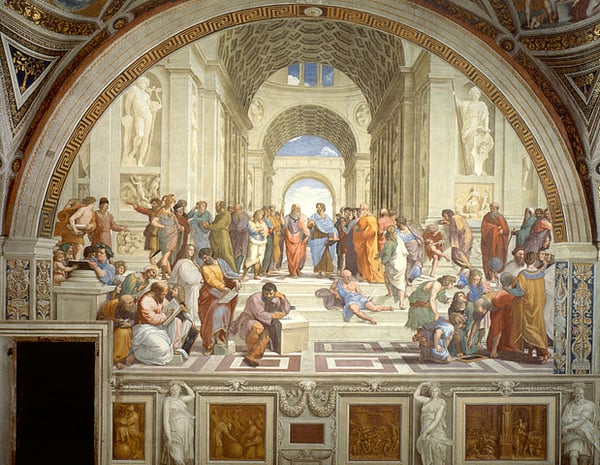Published on
Reflecting On Teaching And Learning

Firstly, I must say that my Higher Education experience and professional practice is almost entirely in adult learning. I teach occasional classes to standard university courses, but that is not my main work. I work in the UK and for the past 15 years my employment has involved designing and delivering HE courses for emergency services workers. Some of these are in leadership and management, some in technical disciplines such as fire safety or hazardous materials work. The courses have usually been a professional development to take people from a good apprenticeship level (i.e. school leaving qualification standard) through certificate and diploma or foundation (associate) degree to Bachelors, Honors and Masters degrees. Almost all of the students are in full time employment and gain credit module-by-module, often taking several years to complete.
About myself; I first studied education in the early 1970s at a teacher training college, what I learned there and then about the philosophy and psychology of education has apparently changed little and the same concepts are in use today, but with different language and terminology. Failing to appreciate the beauty of secondary education school classrooms as a workplace for life, I joined the fire service. It was almost inevitable that with my background I would eventually work in training centers and latterly specialist colleges. This experience has given me the opportunity to teach at a practical, hands-on level, to introduce and promote new concepts and progress knowledge of developing technology and also to engage in deeper learning progression where the educational philosophy is the driver, not the subject content. I gained a Masters degree in curriculum development at the millennium and then enrolled on a Doctor of Education programme. After seven years of research work, ill health forced me to withdraw from that programme and I left with a Post Graduate Diploma in Educational Research and a vastly improved understanding of learning theory, critical thinking and learning styles, but also a cynically analytical way of looking at how little of the teaching and training that is all around us is converted into valuable and beneficial learning.
There are frequent discussions in many forums about concepts of learning and in adult or professional fields the topic of ‘professional experience or academic educator’ will pop up. I would like to think that I am one of the relatively small number of people who can claim to be both. In certain topic areas, I can illustrate theoretical examples or discussions with my personal professional experience, in other areas, I can do what any academic educator can do and construct a meaningful learning environment without having had direct personal experience. Neither is better, neither is worse, they are simply different skills to be used at different times for different audiences. Many of the internet discussion groups seem to take on quite polarized attitudes towards these issues, requiring a binary decision to be made. I find it equally offensive for practitioners to suggest that full-time academics can offer students nothing and for the academics to suggest that practitioners without formal educational qualifications cannot be effective teachers. My personal opinion, and that is all it is, an opinion, although built on an entire career of over forty years, is that roughly 10% of professional specialists have, or can develop what is needed to teach well, 10% of academic tutors have the wisdom and ability to create excellent theoretical models that will be of value to students in their working lives, then there are the rest. That is where I would like to make comments about what I would like to see change in current practice.
Firstly, can I say that the first thing I would like to see changed is the political interference in the academic world. If we allow a blend of politicians and accountants to dictate everything in the classroom, we will only drive the best students and the best teachers away from mainstream education. Evidence is already becoming available that this is happening in the UK. I will not try to justify that generalization by citing references, read the specialist education press and research the question for yourself.
In the UK in the Blair era, there was an obsession with measuring and counting everything; grades, examination passes, league tables, Standard Attainment Tests and so on. To paraphrase my Grandmother “you don’t make a pig fat by weighing it!” It is necessary to have effective management in HE institutions, it is necessary to have effective financial processes, it is essential to have the correct leadership. Just as an inspirational Head Teacher can turn around a failing school, so an equally capable Vice-Chancellor can inspire a university, its faculties and both its staff and students, none of this requires political interference. Oversight, possibly, but hands off the practice.
Secondly, in terms of changing pedagogic, or to be accurate in my own situation andragogic, practices can I introduce, particularly in professional, technical or even scientific subjects, definitions of “Content” and “Context”? I firmly believe that the ontology of any subject must be taught and or learned before we can proceed to using the knowledge contained therein, but how do we make that knowledge base meaningful to the student in “real-world” terms? There are many ways to use different words here, possibly the most frequently encountered would be “Knowledge” and “Understanding”, but they only cover some of the territory. Understanding in this context is generally taken to be the academic ability to manipulate knowledge, to adapt it to new and unfamiliar situations, but that is still only part of the full range of “understanding”.
To return to the question outlined earlier relating to the professional practitioner and the professional academic as course tutors: If one can provide the content, the knowledge, the hard facts—the brutal reality of the world of work—cannot the other provide a discursive environment to manipulate, deconstruct and analyze that contribution to encourage genuine synthesis of an original and beneficial student response? Would this response not act both as assessable work, to satisfy the grading requirements but also as an expression of the learning experience that the student has gone through?
If the practitioner and the teacher could leave their respective prejudices at the door and work together to allow their respective strengths to create an environment in which the students can flourish and contribute to the overall understanding, I believe that all would benefit. This approach is considered “old-fashioned” at the current time, it smacks of the ancient universities, the professorial dissertation, a didactic knowledge transmission delivered en-masse to a packed theatre followed by cozy tutorials where small groups, or even one-to-one discussion, can take place. This allows different learning styles to absorb and develop information in different ways, it reinforces the single teaching event, it encourages not only note-taking, but examination of those notes to prepare an argument, these, to me are the foundations of effective learning, can we not find a way to deliver this in a contemporary form?
To finish, I will introduce another idea that I believe to be my own thinking, but if anyone can provide me with references to suggest that it is not, I will be happy to receive them. In analyzing a range of educational learning environments from early-years school to post-graduate research methods seminars and including work-based training, I came to one conclusion that I truly believed to be a missed opportunity in academic research:
Teaching is typically a group activity, learning is invariably an individual process.
Particularly in modern business motivational work I have been truly disheartened by the overuse of “focus groups”, “action learning sets” and other extroverted palliative forums. I have a highly introverted learning style, I am a reflector. These groups draw from me, but do not give to me—and I suspect that I am not the only one.
Creating the much-sought-after meaningful learning environment is the constant search for the Holy Grail of Teaching, perhaps it is time that we focused more on the Golden Fleece of Learning. Have you, dear reader, ever heard the expression that “there is a lot more teaching than learning going on here”?
Author Perspective: Educator


